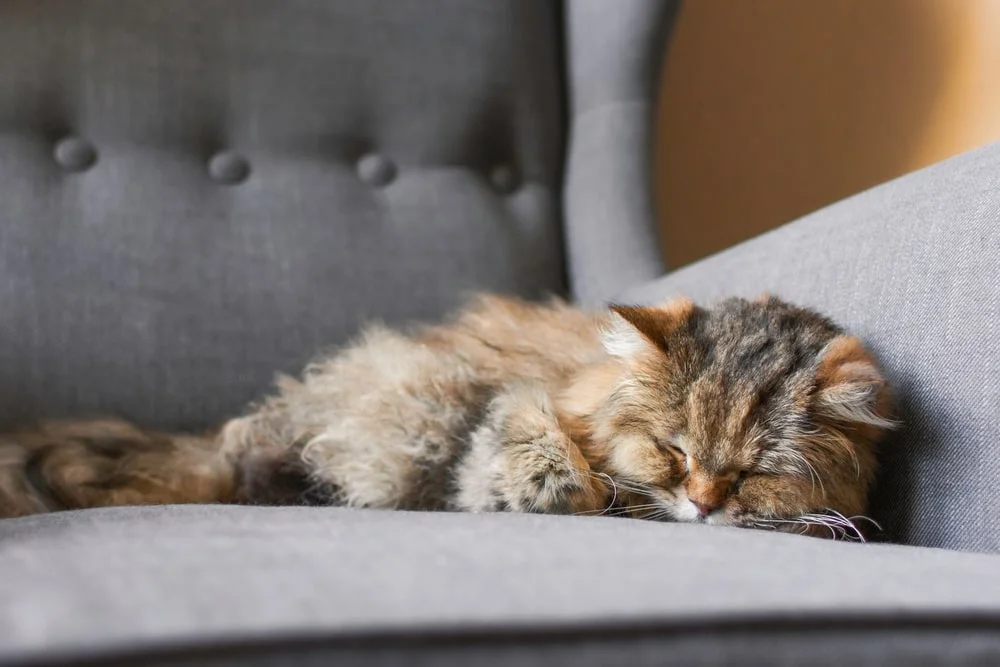PET CARE
Did you know a cat is considered a “senior” when he is seven to ten-years-old? It probably doesn’t come as a surprise that an older cat will have different and unique needs compared to a kitten. Just as the health needs and requirements of humans change as we age, so too do the requirements and health needs of our cats.
Caring for a Senior Cat
A seven-year-old cat probably won’t have too many outward changes. A cat of this age is still as playful and mischievous as a kitten, but may have new health concerns, may need to eat less food because her metabolism is slowing down and may require more frequent visits to the veterinarian.
Whether you’re living with a cat you’ve raised from kittenhood are looking to adopt an older cat from a shelter or rescue, know you can buy a cat health insurance policy that will protect him (and your wallet) at every stage of life.
Keep your cat at a healthy weight. It is easy to overfeed your senior kitty, especially when you’re feeding him the same amount but he’s slowing down and is not as physically active as he once was. Ask your veterinarian how much you should be feeding, based on the cat’s age and activity level.
Health Conditions
An overweight cat is more prone to diabetes, liver disease, skin disease and even certain cancers. If your cat requires a special diet, work with your veterinarian to find one that keeps your kitty at an appropriate weight and addresses potential health issues.
Make sure your cat has protein in his diet. Cats are obligate carnivores and require nutrients in their diet such as arachidonic acid and taurine – found in animal proteins. Cats also require higher levels of protein than dogs, especially as they age.
Enrich your cat’s environment, no matter what age. Don’t forgo interactive toys and playtime with your senior cat. Offer your senior cat puzzle food toys; these will make her “work” for her food while enriching her physically and mentally.
Give your cat a place where he can get above the fray and lie in a sunny spot and relax. Cats love to be higher than their pet counterparts, that’s why you will find them on top of the refrigerator, on the highest bookshelf or on the back of the couch.
You may need to make accommodations for your senior cat if he can no longer make the leap to his favorite hideaway spot.
If your older cat is struggling to get into and out of a high-sided litter box, provide a box with lower sides. Carry her up and down the stairs if she is wobbly or arthritic. If you find a place your senior cat seems to favor over others, provide a soft blanket or put a cat bed or a box there to give her a softer more secluded place to rest.
Keep food and water in an easily accessible place. If your cat used to eat on the counter, but can no longer make the leap to or from, move his food to a lower space that is more comfortable for him.
Check out this list of the top 5 most common health conditions in senior cats.
Cat Lifestyle Tips
These tips are as much feline-specific as they are senior cat specific ways to make your cat’s life the best it can be:
- Schedule at least annual veterinarian visits. Your vet will check your cat’s weight, overall health condition as well as her teeth and dental health
- Make note of any changes in your cat’s sleep, eating or activity habits
Is he throwing up? Feed smaller, more frequent meals - Play with your cat to keep him physically active
- Give your cat a warm, soft place to sleep and keep her bedding clean
- Trim your cat’s nails or have your veterinarian do it
- No matter what age your cat is, give her plenty of love, hugs and attention that’s great advice for any pet parent!
Cats who receive routine medical visits and physical activity as well as a balanced diet and affection, can live a long time and enrich your life for decades.
Pets are like family. Having an active cat insurance plan, may be able to help.
Nothing in this article should be construed as financial, legal or veterinary advice. Please consult your own advisors for questions relating to your and your pet’s specific circumstances.

